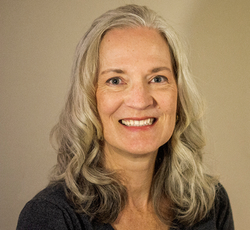
Life Coach, Management Consultant, Writer
Living with complex trauma and associated episodic depression, anxiety and addiction
Described as oversensitive and dramatic as a child, Donna always believed she was just weird and bad. When she was 40 she was diagnosed with depression, but that was incomplete in describing the life-long cascade of chronic and extreme fear, sadness, self-loathing and wishing for death. She struggled at home and at work, and lost a job and a career because her workplace didn’t know how to support her. Understanding that this was complex trauma, stemming from a decade of sexual abuse as a child, was the key to unlocking her potential for health and happiness. Today, Donna embraces being a benevolent disruptor, using her personal experiences to advocate for social change.
Donna’s Story
What was your most difficult time?
There have been so many–struggling back from difficult life events, wanting to die to get away from excruciating psychological pain. Looking back, I am still astonished that I thought that all my problems were because I was weak and stupid.
What helped you get well and move to stability?
A crucial component to my recovery is that I have not done just one thing. I’ve used many types of therapeutic modalities: medication, cognitive behavioral therapy, brainspotting, Wellness Recovery Action Plan (WRAP), peer support, coaching, meditation, self-hypnosis, exercise, dance, sleep hygiene, good nutrition and being in nature. I’ve limited destabilizing factors including alcohol, caffeine, sugar, overwork and stressful relationships.
How do you manage your condition and stay healthy?
I work at the practice of stepping back and asking myself: “Does this make my heart sing?” If not, I say “No.” Or, I work toward changing something (my situation, my attitude, my resources) so that I can say “Yes” with a happy heart.
I have learned to notice early warning signs that I am becoming unwell. When this happens, I increase my self-care to its highest level, decrease stressors, slow down, and engage with my network of support.
What words of encouragement would you give to someone struggling with a condition similar to yours?
Learn about yourself in a therapeutic environment, where you are safe to dig deep. Keep trying if you don’t click with a therapist or type of therapy. Be open to trying many things to help you get well and stay well.
Examine toxic relationships, habits, and activities. Keep saying to yourself: “I don’t want to feel this way again. What is one small thing I can change right now?” Then do the one small thing. This will lead to another small thing and another.
Inside all of this there is infinite capacity for self-compassion, learning and growth. There is hope. Keep working at it. You can do this. You are not alone.
